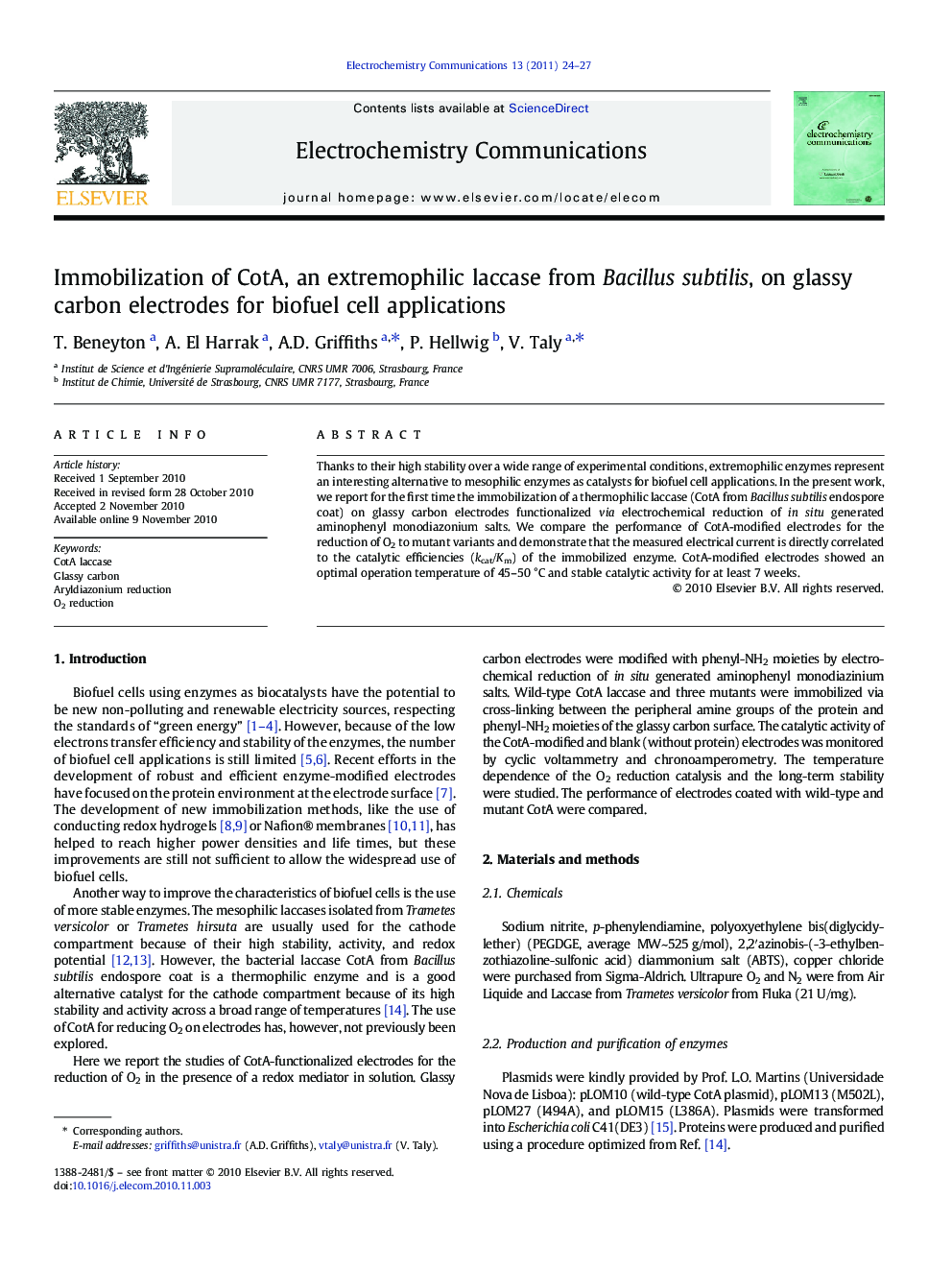| Article ID | Journal | Published Year | Pages | File Type |
|---|---|---|---|---|
| 180596 | Electrochemistry Communications | 2011 | 4 Pages |
Thanks to their high stability over a wide range of experimental conditions, extremophilic enzymes represent an interesting alternative to mesophilic enzymes as catalysts for biofuel cell applications. In the present work, we report for the first time the immobilization of a thermophilic laccase (CotA from Bacillus subtilis endospore coat) on glassy carbon electrodes functionalized via electrochemical reduction of in situ generated aminophenyl monodiazonium salts. We compare the performance of CotA-modified electrodes for the reduction of O2 to mutant variants and demonstrate that the measured electrical current is directly correlated to the catalytic efficiencies (kcat/Km) of the immobilized enzyme. CotA-modified electrodes showed an optimal operation temperature of 45–50 °C and stable catalytic activity for at least 7 weeks.
